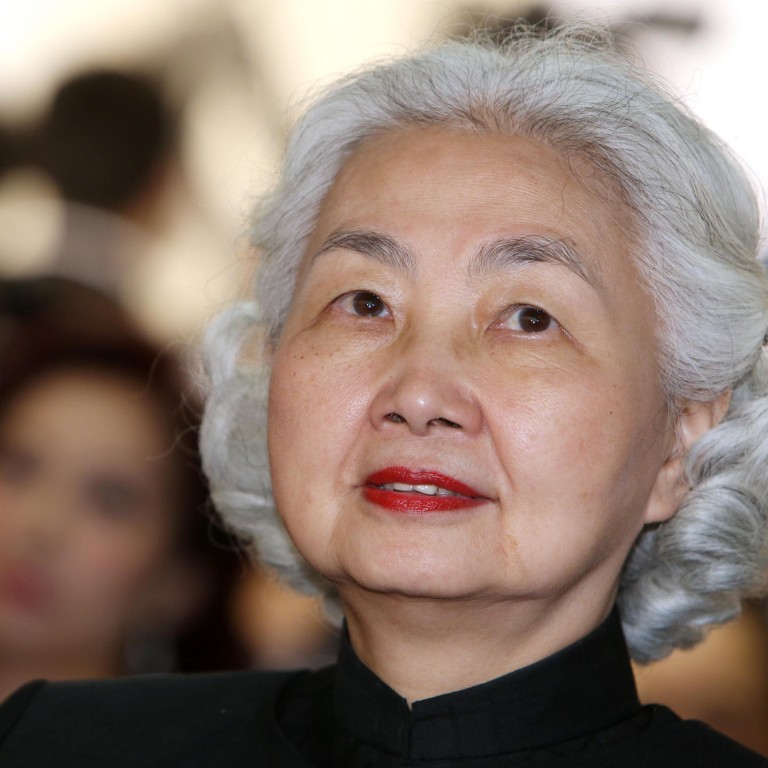
Elsie Leung advocates keeping to 'reasonable number' of chief executive candidates
Pro-Beijing heavyweight weighs in on debate over how to choose candidates to stand in first fully democratic election for chief executive
Elsie Leung Oi-sie has joined the debate about how to choose candidates for the next chief executive election in 2017.
Leung, vice-chairwoman of the national legislature's Basic Law Committee, said granting voters the right to nominate candidates could end up usurping the power of the nominating committee required under the Basic Law.
She also said it was worth considering limiting the field of candidates to a "reasonable number".
There has been debate recently about the idea of "civil nomination", under which candidates would be allowed to run for the city's top job if they secured the support of a sufficient number of voters.
But Leung, speaking at a private lunch held by the pro-government Hong Kong Women's Development Association to discuss the Basic Law and universal suffrage, asked: "If [a person has] secured as many as 100,000 nominations, does it mean the nominating committee must approve him as a candidate? Some think this proposal would usurp the power of the nomination committee.
"A universal right to stand for election is not equivalent to a universal right to be qualified as a [chief executive candidate]."
According to the Basic Law, any chief executive candidate must be nominated by a "broadly representative" nominating committee in accordance with "democratic procedures". But the mini-constitution does not spell out the details.
Various pan-democratic parties and groups have been discussing proposals for civil nomination and whether they should make that a prime goal of their push for electoral reform. Student-led group Scholarism has demanded it be a requirement for the election that all 3.5 million registered voters form the nominating committee.
Supporters of civil nomination say it would ensure fairness and that whoever wins the election had a mandate.
But Leung, also a former secretary for justice, said civil nomination could bloat the number of candidates and jeopardise the effectiveness of the election. "If there are too many candidates, it cannot be guaranteed that at least one of them would get over half of the votes," she said.
Mainstream pan-democratic groups have thrown their weight behind civil nomination.
The Democratic Party, the Labour Party and the Association for Democracy and People's Livelihood said they supported civil nomination as a means of selecting candidates. But they have refused to sign up to Scholarism's demand.
These parties say they want to consult the public more widely.
Labour Party lawmaker Cyd Ho Sau-lan said civil nomination would give Hongkongers confidence that individuals can stand for election as long as they have received broad support. But she said: "It should not be the only means of nomination."
Democratic Party vice-chairman Richard Tsoi Yiu-cheong said the nomination threshold should not be too high.
Professor Chan Kin-man, a core organiser of the Occupy Central democracy campaign, said civil nomination was in line with democratic standards internationally, but further discussion was needed.
Beijing-friendly legislator Priscilla Leung Mei-fun, meanwhile, said civil nomination was inconsistent with the Basic Law.
